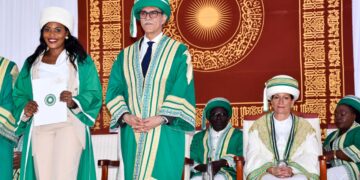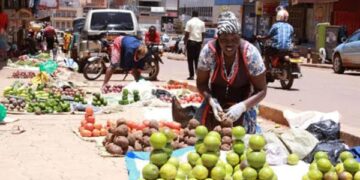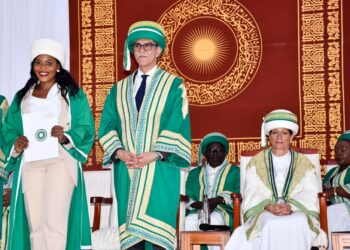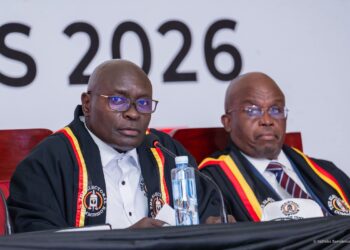By Prince Obed Twijukye,
KAMPALA,
Uganda’s co-hosting of the 2024 African Nations Championship (CHAN) was a milestone moment, reflecting the country’s growing ambition to position itself as a strategic player in sports diplomacy. Being one of three East African nations selected to stage the tournament alongside Tanzania and Kenya was not only about football, it was a defining moment for national prestige, regional tourism, job creation, and an economic boost. It reaffirmed Uganda’s ability to host global events with confidence, even as we prepare for greater opportunities ahead.
Morocco claimed a record third CHAN title by defeating Madagascar 3–2 in the final, which was held in Nairobi on Saturday, August 30th, 2025. This delayed edition, pushed by six months due to unfinished infrastructure, reignited debate about CHAN’s relevance in an already packed football calendar. Yet, for Uganda, the championship offered priceless lessons and visibility. Morocco’s triumph came with an increased prize of $3.5 million, but beyond the numbers, CHAN 2024 showed us something far deeper, the power of football to unite.
CHAN presented another face of Uganda: togetherness, or what we fondly call pamoja-ness. The atmosphere at Mandela National Stadium was electric. The passion of Ugandan fans, their songs, their tears, and their laughter proved that football transcends political and social divides. For ninety minutes, Ugandans became one family, united by hope and pride. Uganda hosted 12 of the 44 games, including a semi-final and the third-place play-off. Although many felt “shortchanged” when Kampala missed out on the opening game and the final, the spirit in Namboole and across the country was undeniable.
But football was not just about entertainment, it was about livelihoods. CHAN fueled a chain of economic opportunities. Street vendors sold flags and vuvuzelas, youth printed and branded jerseys, boda boda riders ferried fans to stadiums, and hotels filled with visitors. Thousands of Ugandans cashed in, reminding us that sports can be a true engine of job creation and prosperity.
Performance-wise, all three East African hosts impressed by reaching the knockout stage, though none advanced to the semi-finals. Tanzania bowed out to champions Morocco, Kenya lost to Madagascar, and Uganda fell to Senegal. Yet, the trio now look ahead to an even bigger challenge: hosting the prestigious Africa Cup of Nations (AFCON) in 2027. CHAN 2024 was a rehearsal, and AFCON will be the real stage.
For Uganda, preparations are underway. By December 2025, two ultra-modern stadiums, Hoima City Stadium and Akii-Bua Stadium in Lira are expected to be complete. These will complement Mandela National Stadium, with Hoima designated as a main venue and Akii-Bua serving as a contingency. Similar projects are ongoing across the region: Kenya is upgrading Kasarani and Nyayo, while Tanzania has improved Benjamin Mkapa and Amani in Zanzibar. East Africa is getting ready, and AFCON 2027 will showcase that readiness.
One challenge Uganda faced during CHAN was poor publicity. Matches lacked adequate hype, and fans were unfamiliar with e-ticketing systems. Issues of touts reselling tickets at inflated prices and duplicated tickets being sold dented the experience.
As AFCON 2027 draws nearer, these gaps must be closed. Fortunately, the presence of star players, household names like Mohamed Salah and Andre Onana, will draw crowds. Fans will have an even greater reason to attend, but the systems must be user-friendly and transparent.
The Uganda Cranes, despite exiting early, impressed with their spirit. The players were motivated by the direct support of H.E. President Yoweri Kaguta Museveni and the First Lady, Hon. Janet Kataaha Museveni, the Minister of Education and Sports. The government’s reward of UGX 1.2 billion per win saw the team pocket UGX 2.4 billion.
In addition, 28,000 tickets were purchased by government for Ugandans to attend the third-place match free of charge. These gestures inspired both the players and the fans, reinforcing the bond between the team and the nation.
The shared banner of PAMOJA, Swahili word for “Together” defined CHAN 2024 and will remain the heartbeat of AFCON 2027. For the first time since 1976, the tournament will return to the CECAFA region, coinciding with AFCON’s 70th Anniversary. June and July 2027 will be historic months, as Uganda, Kenya, and Tanzania welcome Africa to a football festival that will leave a lasting legacy.
My humble appeal is that when AFCON begins, each of the three hosts should stage their own opening ceremony for their first home match, an opportunity to showcase East Africa’s culture and unity to the world. Football can and should be more than competition; it should be a celebration of who we are.
As Uganda marks her 63rd Independence Anniversary on 9th October 2025 at Kololo Ceremonial Grounds, under the theme “63 Years of Independence: A Reason to Double Our Effort in Sustaining a United and Progressive Nation,” CHAN 2024 has already given us a taste of what unity can achieve. Independence is about more than the past, it is about preparing for the future. And as AFCON 2027 approaches, East Africa has a chance to prove that when we stand pamoja, there is nothing we cannot achieve.








































